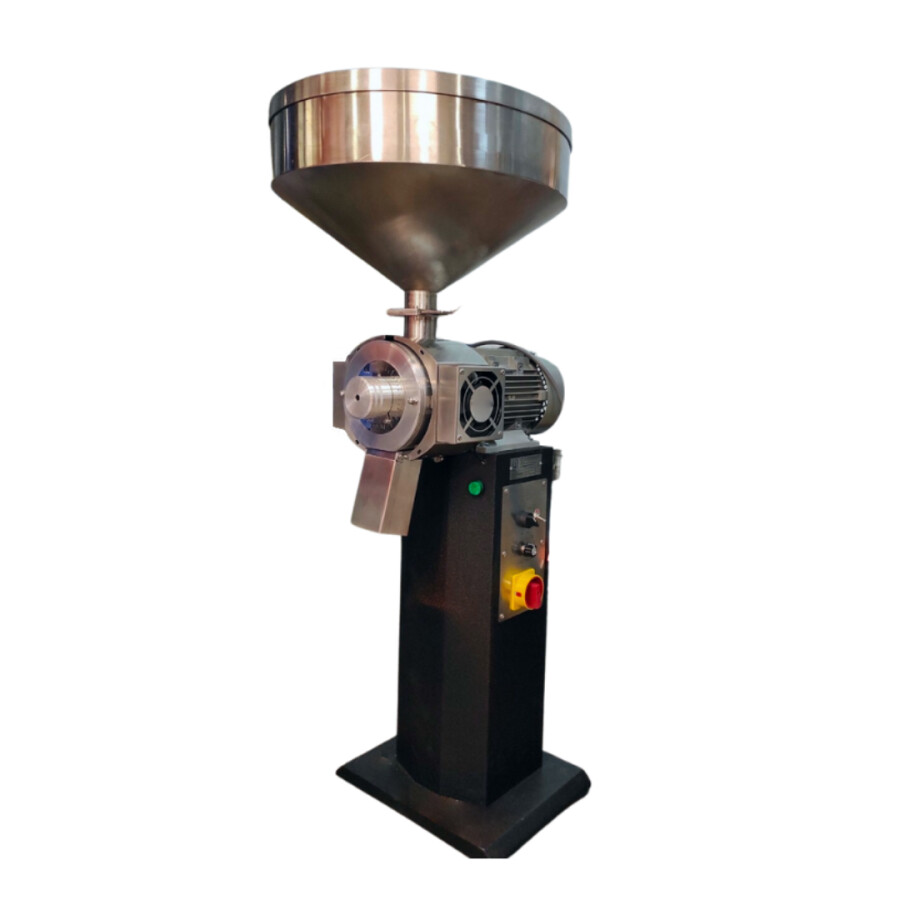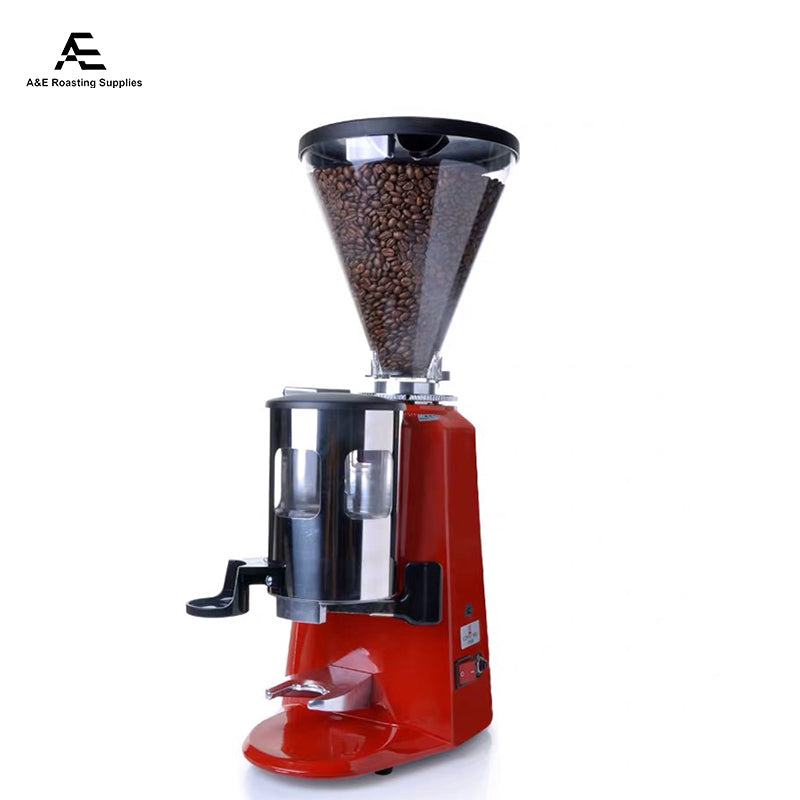How an Industrial Coffee Grinder Improves Flavor Consistency
How an Industrial Coffee Grinder Improves Flavor Consistency
Blog Article
Industrial Coffee Mill Guide: Boost Performance and Quality
In the competitive landscape of coffee manufacturing, choosing the best commercial coffee grinder plays a critical role in enhancing both effectiveness and item high quality. Understanding the subtleties of various mill types and crucial features-- such as customizable work settings and robust building-- can dramatically affect the last taste profile of the coffee.
Comprehending Mill Kinds
When picking a commercial coffee mill, understanding the different kinds offered is essential for optimizing both taste extraction and operational performance. The two key sorts of grinders are blade grinders and burr grinders. Blade grinders use sharp blades that chop coffee beans into irregular sizes, resulting in irregular removal and potentially unfavorable tastes. While blade grinders are usually a lot more affordable and suitable for small procedures, they are generally not advised for commercial usage.

Eventually, choosing the appropriate type of grinder is integral to maintaining top quality and effectiveness in coffee production, making it vital for services to purchase high-grade burr mills for ideal outcomes.
Key Functions to Think About
Choosing a commercial coffee mill calls for careful factor to consider of several key functions that can considerably influence both efficiency and the overall coffee experience. Among the primary elements to assess is the grinding mechanism. Burr grinders are generally preferred over blade mills, as they offer a constant work dimension, which is essential for optimal removal and flavor.
One more vital feature is the mill's capacity. A flexible grinder with multiple setups allows you to tailor the grind dimension to various brewing techniques, boosting the coffee's taste account.
The building product additionally plays a role in durability and upkeep. Stainless-steel parts frequently use longevity and are simpler to clean, which is vital for preserving health requirements. Review the grinder's noise degree, especially in a hectic café or manufacturing atmosphere, where excessive sound can be turbulent. Investing in a grinder that stabilizes these features can significantly boost both operational effectiveness and the high quality of the coffee served.
Optimizing Grinding Refine
To accomplish the very best lead to coffee prep work, enhancing the grinding process is essential. The work dimension considerably affects removal, flavor, and general high quality of the brewed coffee. Different developing approaches need particular grind dimensions; as an example, coffee demands a fine grind, while French press requires a rugged texture. Recognizing the partnership between grind dimension and brewing method is the very first step in optimization.


Furthermore, keeping track of the grinding speed can optimize the procedure. Slower grinding usually generates much less heat, protecting delicate tastes and fragrances. Alternatively, quicker grinding may generate excessive warmth, adversely impacting the coffee's high quality.
Upkeep and Care Tips
Correct upkeep and care of commercial coffee mills are necessary for making certain optimum efficiency and longevity. Routine cleansing is the foundation of upkeep; residue buildup can influence taste and grinding effectiveness. It is a good idea to cleanse the mill after each usage, cleaning down the outside and eliminating any kind of coffee grounds from the burrs.
Furthermore, check the grinding burrs for damage. Boring burrs can compromise grind uniformity, so they must be changed as essential. Industrial Coffee Grinder. Regularly calibrating the grinder is also crucial, as this maintains the preferred grind size for numerous developing techniques
Lubrication of moving components should be performed according to the manufacturer's requirements, as this decreases friction and prolongs the life of the tools. It is necessary to make use of food-grade lubes to make sure security and compliance with health and wellness laws.
Lastly, maintain the grinder in a completely dry and steady environment to prevent rust and corrosion. By sticking to these upkeep and treatment suggestions, operators can boost the effectiveness of their industrial coffee mills while making certain high-grade outcome and extended operational life.
Roi Analysis
Assessing the roi (ROI) for industrial coffee mills is important for services seeking to maximize their coffee production abilities. A thorough ROI analysis helps establish the monetary practicality of purchasing explanation top notch grinders, enabling businesses to evaluate the first expenses against possible gains.
To perform an extensive ROI analysis, businesses should consider numerous essential variables. First, evaluate the acquisition rate of the grinder, consisting of installation and any kind of necessary modifications to existing framework. Next, compute operational expenses, including power intake, upkeep expenditures, and labor effectiveness renovations. High-performance grinders frequently result in minimized grinding time and boosted throughput, which can considerably enhance performance.
Furthermore, consider the influence on product high quality. Industrial Coffee Grinder. Superior mills yield an even more consistent work dimension, which can improve flavor profiles and client fulfillment, ultimately driving sales. By boosting the high quality of the end product, companies can warrant higher rates, resulting in boosted earnings
Conclusion
In summary, a commercial coffee grinder plays a pivotal function in enhancing both efficiency and item quality within coffee production. By picking high-grade burr mills equipped with necessary features such as flexible grind setups and resilient building and construction, businesses can guarantee optimal flavor extraction. Moreover, routine upkeep is go right here vital for sustaining grinder efficiency and optimizing client satisfaction. Eventually, the strategic financial investment in a trustworthy grinder contributes significantly to enhanced earnings and competition in the coffee industry.
In the competitive landscape of coffee production, selecting the appropriate industrial coffee mill plays an essential duty in boosting both performance and product quality. The this 2 key types of mills are blade grinders and burr grinders. Within the burr mill classification, there are flat burr mills and conelike burr grinders, each with its advantages. Burr mills are normally liked over blade grinders, as they supply a regular grind size, which is crucial for optimum removal and taste.
In recap, a commercial coffee mill plays a pivotal duty in enhancing both performance and item high quality within coffee manufacturing.
Report this page